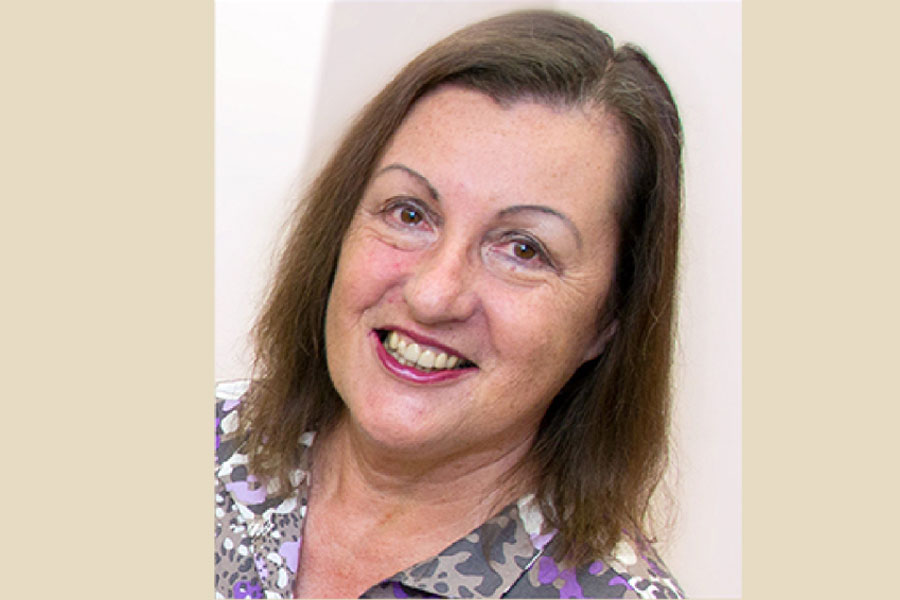
“Great professional/cultural experience with career enhancement.”
College: Arts and Sciences
Department: Nutrition and Exercise Physiology
Host City and Country of Fulbright Award: Belgrade, Serbia
What motivated you to apply for a Fulbright award?
During my entire academic career, I was aware of the opportunities, as well as the prestige that Fulbright award brings not just to the individual recipient and her/his institution, but to the host staff and their organizations across the world. Since the application process is rather lengthy and engaging, I never had enough time to seriously commit to it until I "officially" retired. Subsequently, after retirement I started thinking of the best project and place that will both enhance my research and help the host organization. My Fulbright project/proposal entitled: “Nutrients and bioactive food components in reducing inflammatory processes and improving body composition (bone, muscle, fat tissue) outcomes,” involves the main components of my research. In 2014, I have identified a new syndrome, “osteosarcopenic adiposity syndrome” (OSA), which has been recognized and studied throughout the world. Briefly, OSA encompasses the deterioration of bone, muscle and adipose tissues and is characterized by the simultaneous presence of osteoporosis, sarcopenia, and adiposity/obesity, respectively. OSA has been associated with metabolic dysregulation and compromised functionality. Furthermore, several nutrients have been identified in OSA etiology, prevention, and management. However, this research is nascent, and more investigation is needed, both on cellular levels (to clarify the mechanisms), and via randomized clinical trials in human subjects. A few years ago, I introduced and started such research at the University of Zagreb, Croatia and University of Sarajevo, Bosnia & Herzegovina (both countries are parts of former Yugoslavia, the region I originate from). In planning my current Fulbright project, I realized that the faculty at the Institute for Medical Research at the University of Belgrade, Serbia (also part of former Yugoslavia), and their research would be a perfect fit for collaborative work. This is how everything started, and this is how I ended up with my Fulbright project being conducted at the University of Belgrade.
Describe the importance and reach of the research and/or teaching you did while on Fulbright?
The Fulbright Scholar Award enabled me to expand my international research at the University of Belgrade, in Serbia and continue collaboration with University of Zagreb, Croatia and University of Sarajevo, Bosnia-Herzegovina. On my behalf, all three institutions received the equipment for bone and body composition measurements from BioTekna Inc.®, Venice, Italy, https://www.biotekna.com/Medical, a company with which I have a long-term collaborative connection. The company is involved in developing and manufacturing devices for measurements of various physiological and pathological mechanisms of the human body, which I am investigating and which I have introduced at all three institutions (University of Belgrade, University of Zagreb, University of Sarajevo). I started my Fulbright project at University of Belgrade, in fall 2022, but we have already published one peer-review article: "Nutrition and Physical Activity as Modulators of Osteosarcopenic Adiposity: A Scoping Review and Recommendations for Future Research." Nutrients 2023, 15, doi:10.3390/nu15071619. Another article resulting from this research, titled "Osteosarcopenic adiposity syndrome and its relation to chronic comorbidities" has been just submitted to Aging Research Review journal. In December of 2022, I gave a major presentation to the faculty of Medical and Veterinary schools at University of Belgrade. The presentation was entitled: "Obesity from Another Angle: Osteosarcopenic Adiposity (OSA) Syndrome with Nutritional and Lifestyle Approaches for its Prevention and Management" and was well attended and received. Overall, my involvement as a Fulbrighter at the Institute for Medical Research has been rewarding and beneficial for me as well as for my colleagues and their Institute at the University of Belgrade.
Tell us about significant personal Fulbright experiences you had
I acquired new colleagues who also became personal friends. For example, we made a habit of going out as a group frequently for light lunches and productive discussions. Another colleague would check on me every weekend to make sure I'm not lonely or in need of homemade food or anything else. My landlady would inform me of all events going on in the city and provided ample of other tips to make life easier.
Advice for anyone considering the Fulbright award
Besides the topic of your expertise, be sure to choose the university and country you would enjoy being in. Whether you will be on a teaching or research assignment or both, your environment is very important. Equally important for the success of your project are the people with whom you will be working. Therefore, try to make closer contact with individuals who respond to you or agree to invite you. Besides professional connections, some personal exchanges and interactions are invaluable in creating a great overall experience.
Accomplishments
Although I have retired from FSU in 2017, I continued to pursue my research at other institutions, namely, University of Zagreb and Institute for Medical Research in Zagreb, Croatia. This Fulbright Scholar Award placed me at the University of Belgrade where I introduced my research on osteosarcopenic adiposity syndrome and enticed my colleagues there to engage and carry out additional projects in that direction. I'm particularly gratified that, based on my professional connections and scholarly reputation, I was able to secure equipment for body composition (bone, muscle, fat) measurements to both institutions from the Italian company BioTekna Inc.®, Venice, Italy, https://www.biotekna.com/Medical. This will enable faculty from both institutions to expand their research and advance their careers. I'm also proud of numerous (more than 200) peer-review articles in reputable journals which I have published before and after "official" retirement, as well as several federal grants I received for my projects.
